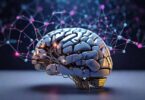Artificial intelligence (AI) applied to health is very important, although its use has some disadvantages.
Artificial intelligence (AI) and its application in health is considered an important tool, however there are ethical implications and some risks in its application to health.
First of all, artificial intelligence in health has stood out positively in some areas of health and these would be the following:
- Clinical practice. It benefits diagnosis, as well as the processing of handwritten text of medical records or voice analysis of patients to improve the care process.
- Biomedical research. It allows the development of new medications, and to design new drugs, as well as to assist in clinical trials.
- Public health studies. Applied to population and health data blocks to obtain valuable insights about important events related to health.
- Administration of health systems. It allows use in areas such as the semantic normalization of health information when it has not been encoded at source.
In this sense, after addressing the applications of artificial intelligence in health and its benefits, it is important to warn about the risks of this application.
Risks of artificial intelligence in health:
- 1. Lack of empathy: This tool does not have human empathy, which poses challenges in the doctor-patient relationship.
- Risk of bias: AI algorithms depend on source data, and if this data is biased or incomplete, the results may be incorrect or discriminatory.
- Harm to patients due to errors in algorithms: Algorithms dedicated to diagnosing a disease are not perfect and can either make mistakes in identifying a disease or ignore an existing case.
- Misuse of artificial intelligence tools, health professionals must be trained and know the uses and limitations of these tools to put them into practice, and not make mistakes with negative consequences for the patient.
- The lack of transparency: it is given to the algorithms in medicine that see things that we do not see and is a problem, because it has not been possible to find the explanation for why some events occur.
- Privacy and security, the information could be commercialized or used improperly.
- Gaps in responsibility, regulation is not capable of establishing responsibilities from the moment algorithms are developed and put into practice.
Finally, there are many obstacles in the application of artificial intelligence and therefore, the practice of algorithms in the real world.
This is why rigorous validation and regulation of artificial intelligence (AI) systems used in the health sector is very important to guarantee their safety and effectiveness.
FONT
https://www.telefonicaempresas.es/grandes-empresas/blog/riesgos-inteligencia-artificial-salud/







